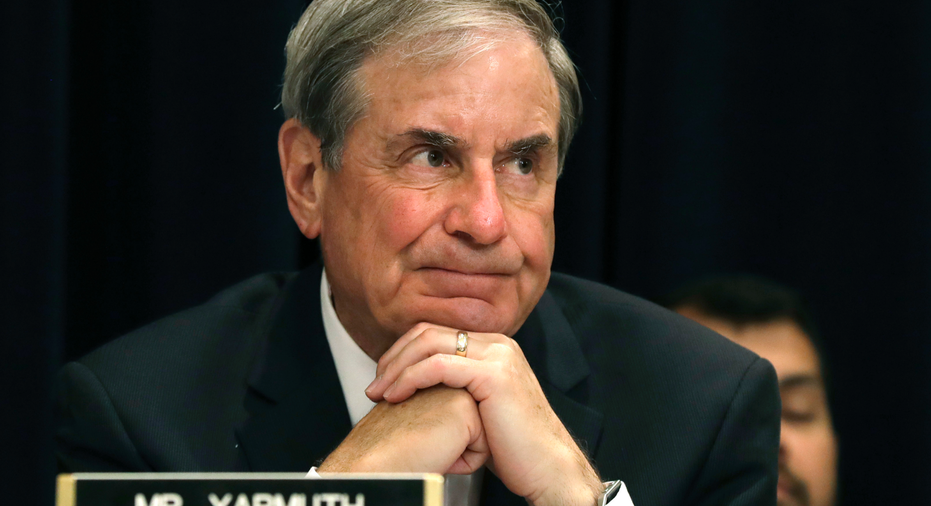House Democrats likely to punt on budget

WASHINGTON – House Democratic leaders appear likely to give up on passing a budget this year rather than trying to bridge divisions between progressives seeking more money for domestic programs and more moderate members in swing districts who fear being attacked on tax hikes.
Budget Committee Chairman John Yarmuth said Wednesday that he's "not very hopeful" of passing a budget plan through the House. And Democratic leaders haven't shown much interest in trying to pressure colleagues to unite the wings of their caucus around a messaging measure that's going nowhere with Republicans controlling the Senate or with President Donald Trump.
"We've got some of our Blue Dogs and New Democrats that are concerned about increases in spending — or if we do a budget resolution, on raising taxes," Yarmuth said. "And then we have a lot of progressives who think we're not really spending enough on non-defense. We've got pressures on both ends of the spectrum."
Instead, Democrats are focusing on a measure that would permit the annual spending bills — which represent the one-third of the budget that Congress passes each year — to get underway, though that process is also fraught with challenges.
In the Senate, Republicans controlling the chamber have unveiled a budget document that would modestly curb budget deficits on track to otherwise breach $1 trillion, while rejecting Trump's gimmick of using war funding to sustain big increases for the Pentagon.
The Senate Budget Committee is slated to approve the measure on Thursday but it's not likely to pass the full Senate.
"I know this budget won't solve all our problems, and I don't pretend it will. It provides a path, however, for us to begin working together to achieve real deficit reduction," said Senate Budget Committee Chairman Mike Enzi, R-Wyo. "My hope is that it will mark the beginning of a serious conversation on issues that Congress for too long has been content to ignore."
But several panel Democrats said the whole exercise is a waste of time and would have no bearing on upcoming budget-related business such as setting overall spending limits for appropriations bills or increasing the government's borrowing cap this summer. And they attacked Republicans for powering through a huge tax cut that's failing to live up to promises that it would pay for itself.
"A party that claimed to care about deficits and the debt seemed to forget that as soon as they got into power and added trillions of dollars to our national debt without blinking an eye," said Sen. Patty Murray, D-Wash. "Instead of being honest about this about how the deficit is ballooning because of their tax cuts for the rich, Republicans are now putting forward pretend budgets that will never pass."
It's common for Congress to skip the annual budget ritual though it opens lawmakers up to criticism that they are ignoring one of the most important parts of their job. But the alternative is to take a tough vote for a budget measure that's likely to be shelved anyway.
Under Washington's convoluted ways the annual budget resolution is a nonbinding measure that sets out broad budget goals but leaves implementation to follow-up legislation. Any Democratic budget would be sure to call for revenue increases to at least reverse portions of Trump's signature 2017 tax cut, a politically sticky prospect for Democrats representing districts that Trump won.
Republicans for years have weathered political attacks for budget plans drafted by former Speaker Paul Ryan, R-Wis., that proposed turning Medicare into a voucher-like program for future beneficiaries. Republicans have never tried to implement Ryan's Medicare plan, just as Democrats aren't likely to repeal Trump's tax bill.
Instead, the primary focus this year is on dealing with the expiration of a Trump-backed two-year budget bargain that ends in October, threatening to bring back automatic spending cuts that would imperil bipartisan efforts to beef up the military and maintain services covered by domestic agencies.
A new deal to lift these budget "caps" is a priority for Democrats and top Republicans like Senate Majority Leader Mitch McConnell of Kentucky, but the way forward is unclear and has been complicated by Trump's recent budget plan. Trump's budget rejected the bipartisan formula of pairing defense spending hikes demanded by Republicans with domestic agency increases favored by Democrats.



















